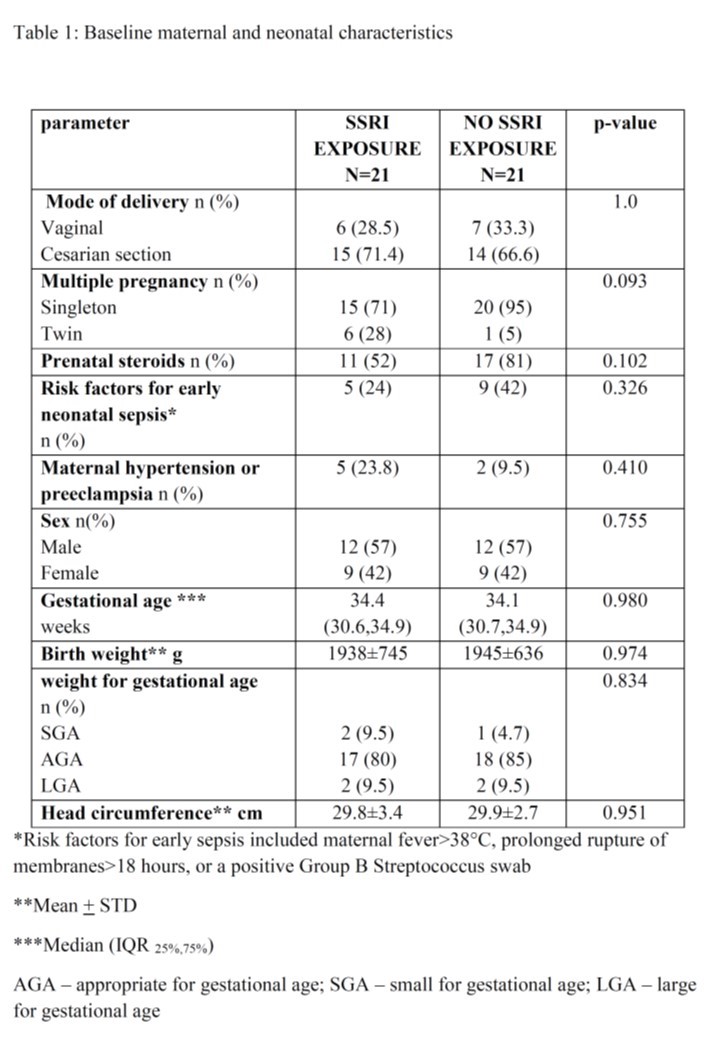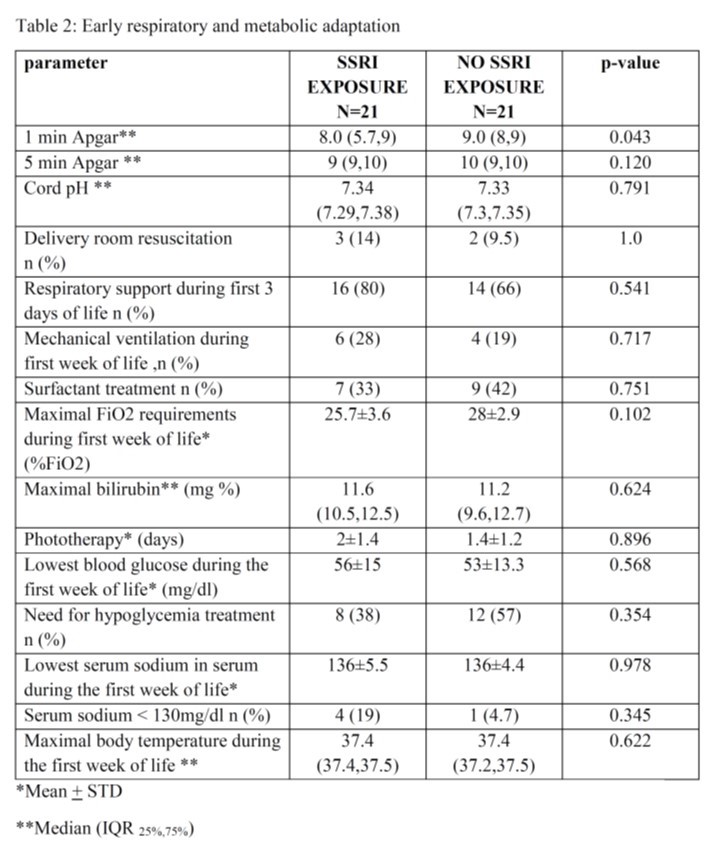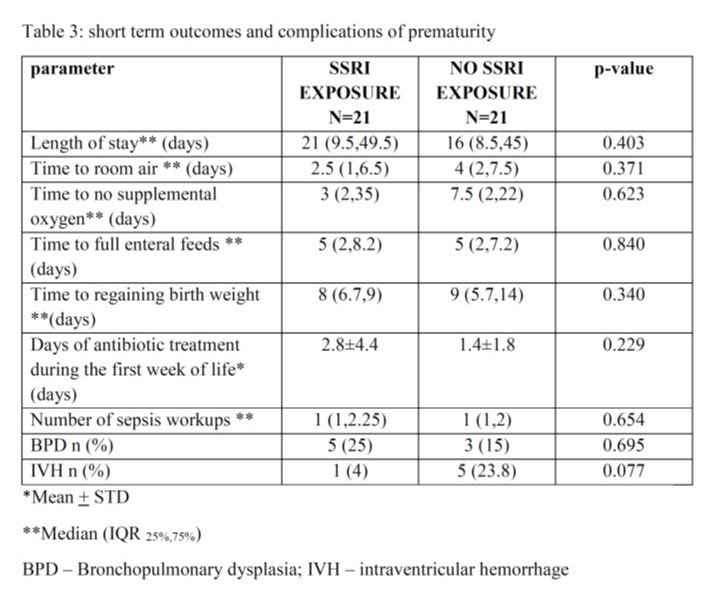Neonatal General
Neonatal General 9: NOWS and Other Exposures
207 - The Effect of SSRI Exposure in Pregnancy on Early Respiratory and Metabolic Adaptation in Infants Born Preterm
Publication Number: 207.333

Ayala Gover, MD (she/her/hers)
Medical Director Neonatal Intensive Care Unit
Bnai-Zion Hospital
Haifa, Hefa, Israel
Presenting Author(s)
Background:
Selective serotonin reuptake inhibitors (SSRIs) are increasingly used for maternal depression during pregnancy, due to their high effectiveness and favorable safety profile. However, substantial placental transfer occurs, and their use in late pregnancy has been linked to increased risk of prematurity and to adverse effects in the newborn. Respiratory and feeding problems, jaundice, metabolic and temperature dysregulation and hypoglycemia have been described in term infants, but scarce data exists on early neonatal adaptation in exposed infants born premature.
Objective:
To assess the effect of SSRI exposure during pregnancy on early neonatal adaptation measures in infants born premature.
Design/Methods:
A retrospective observational study included all preterm infants born between 2015-2022 in Carmel Medical Center who were exposed to maternal SSRIs during pregnancy. Matched controls without SSRI exposure were selected by matching of gestational age, birth weight, sex and date of birth. Data on early respiratory and metabolic neonatal adaptation and on short term outcomes were collected.
Results:
Out of 826 preterm infants born during 2015-2022 there were 21 infants with exposure to SSRIs during pregnancy, and 21 matched controls were selected, so the final cohort included 42 infants. The groups had comparable baseline characteristics (Table 1). Apgar score at the 1st minute of life was significantly lower in the SSRI exposed group compared to the non-exposed group (p=0.043). No difference was found at 5 minutes Apgar, cord pH, or need for delivery room resuscitation. During the first week of life, no significant differences were found in rate of hypoglycemia, hyponatremia, hyperbilirubinemia, need for phototherapy, temperature stability and maximal oxygen requirements (Table 2). There was a trend towards a higher rate of intraventricular hemorrhage in the non-exposed group compared to the exposed group (Table 3).
No differences were found in total time of respiratory support, time to reaching full enteral feeds, length of stay and complications of prematurity (Table 3).
Conclusion(s):
Unlike studies in term infants, no significant differences were found in respiratory and metabolic adaptation between preterm infants with and without SSRI exposure in pregnancy.


